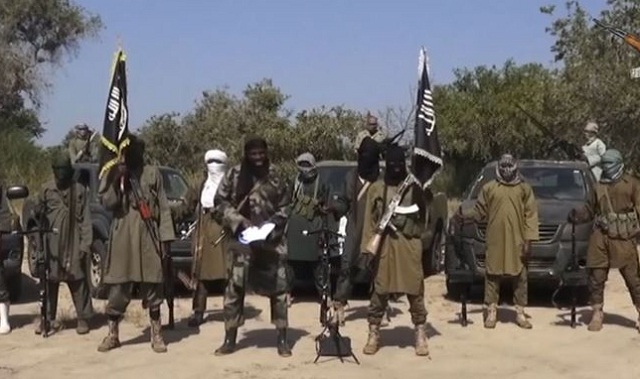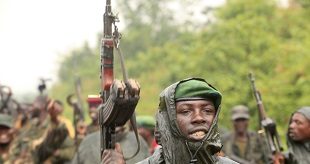
Kano, Nigeria | AFP | The leader of an Islamic State-backed faction of Boko Haram may have been replaced, sources say, against a backdrop of speculation as to his fate — and the group’s future direction.
Three sources with deep knowledge of the group said they had been told in recent days that the Islamic State West Africa Province (ISWAP) had dropped Abu Mus’ab Al-Barnawi.
A previously unknown figure named Abu Abdullah Ibn Umar Albarnawi is said to have replaced Al-Barnawi, whose father Muhammad Yusuf founded Boko Haram in 2002.
The name Al-Barnawi or variations of it derive from Arabic words meaning “The man from Borno,” a state in northeastern Nigeria.
“If the information turns out to be true, it will have far-reaching implications and raise a lot of questions, including the fate of Al-Barnawi,” one of the sources told AFP.
“The big question is, where is Al-Barnawi? Is he alive or is he dead? Knowing how Boko Haram operates, it is unlikely for a leader to be deposed and allowed to move freely.”
Under Al-Barnawi, ISWAP split from the faction led by longtime Boko Haram leader Abubakar Shekau in mid-2016 in opposition to the latter’s indiscriminate targeting of civilians.
Shekau had previously pledged allegiance to IS chief Abubakr al-Baghdadi in 2015 but IS recognised only Al-Barnawi as leader.
Al-Barnawi was considered only a figurehead, with the real power being held by his second-in-command, Mamman Nur.
Nur, who was the mastermind of the 2011 bombing of the UN headquarters in Abuja which killed 26, was assassinated by more radical ISWAP commanders in August 2018.
Since then, Al-Barnawi “has been living on the fringes, careful not to cross the path of the new leadership and earn their wrath”, a second source said.
A third said any change in leadership, which has sparked online speculation among those tracking the conflict, could be considered a “formality”.
“Al-Barnawi had long lost relevance in the group,” he said.
– Dead or alive? –
Nur’s demise followed a lull in ISWAP activity in northeast Nigeria and the abduction of more than 100 schoolgirls from the Yobe town of Dapchi in February 2018.
The more radical lieutenants accused him of helping himself to a ransom allegedly paid for the girls’ release, robbing them of cash needed for operations.
Since July last year, ISWAP attacks on military bases and soldiers have increased, not only denting morale but also allowing the jihadists to restock vital arms and ammunition.
One of the most recent attacks came just hours before polling was due to begin in presidential elections on February 23, and saw rockets fired on the Borno state capital, Maiduguri.
Weapons experts have identified the rockets used as those seized from the Nigerian army in an attack on the Lake Chad town of Baga in December.
Whether Al-Barnawi has suffered the same fate as Nur is unclear but his absence would explain the more aggressive positioning of the group in recent months.
The three sources, who spoke on condition of anonymity for security reasons, suggested that his only guaranteed way out alive was to “abdicate”.
But even that would be a risk for the new leadership, with the possible emergence of another splinter group of Al-Barnawi loyalists.
– Unilateral decision? –
The recognition of Al-Barnawi over Shekau was widely announced on IS-affiliated media outlets. But there has so far been no such announcement about the new leadership.
“The silence from IS suggests ISWAP took a unilateral decision to get rid of Al-Barnawi,” said one of the sources.
“It is an indication that IS doesn’t have the kind of tight control on ISWAP as many are suggesting, especially since the death of Mamman Nur.”
In November, IS claimed to have killed 118 people in five attacks in Nigeria and Chad, making ISWAP its deadliest affiliate.
Analysts said the increasing number and intensity of attacks indicated a greater capacity and mobility, as well as possible wider support from jihadist groups in the Sahel region.
IS’s silence on Nur’s execution was a clear sign of its helplessness in reining in ISWAP, the second source said.
“IS needs ISWAP more than ISWAP needs them because of the defeat it has suffered in Syria and Iraq,” he said.
“They (IS) are now looking to the Sahel for sanctuary,” said the third. “They wouldn’t want to upset their hosts and will have to live with ISWAP’s infractions and different approach.”
 The Independent Uganda: You get the Truth we Pay the Price
The Independent Uganda: You get the Truth we Pay the Price


